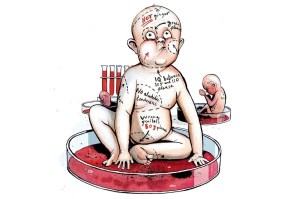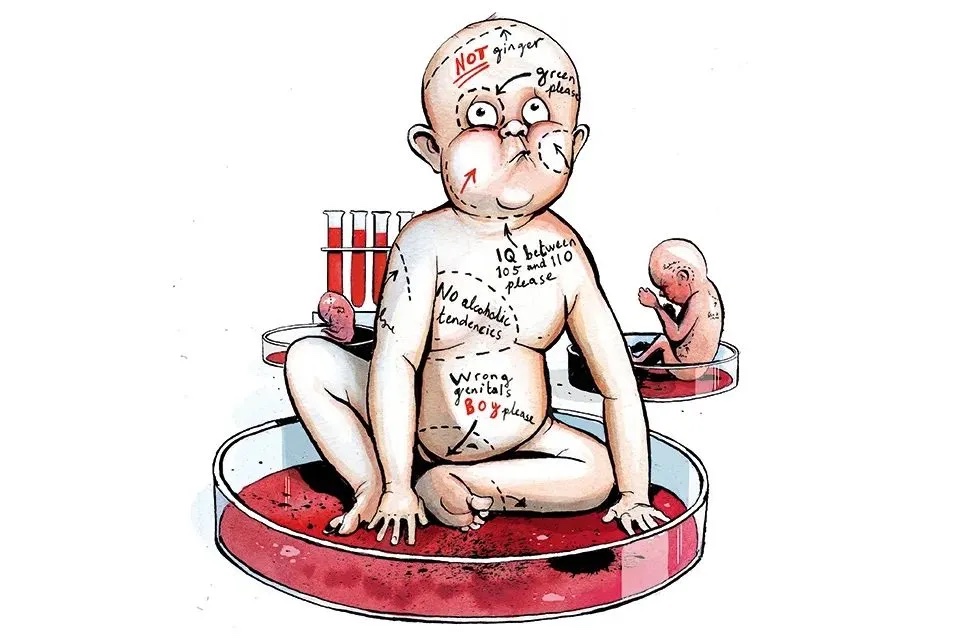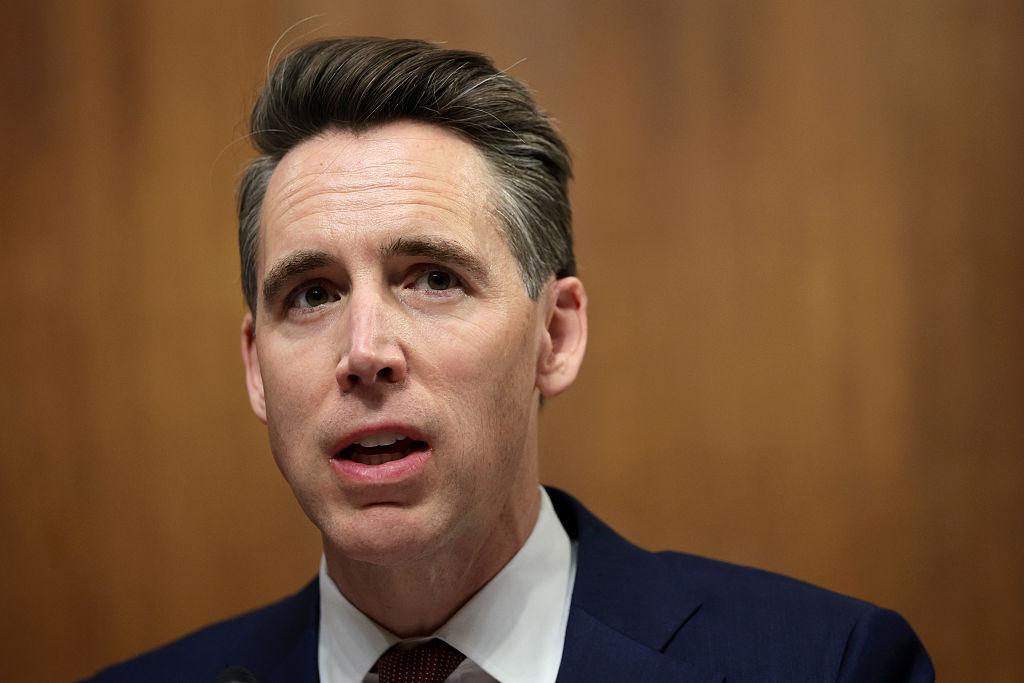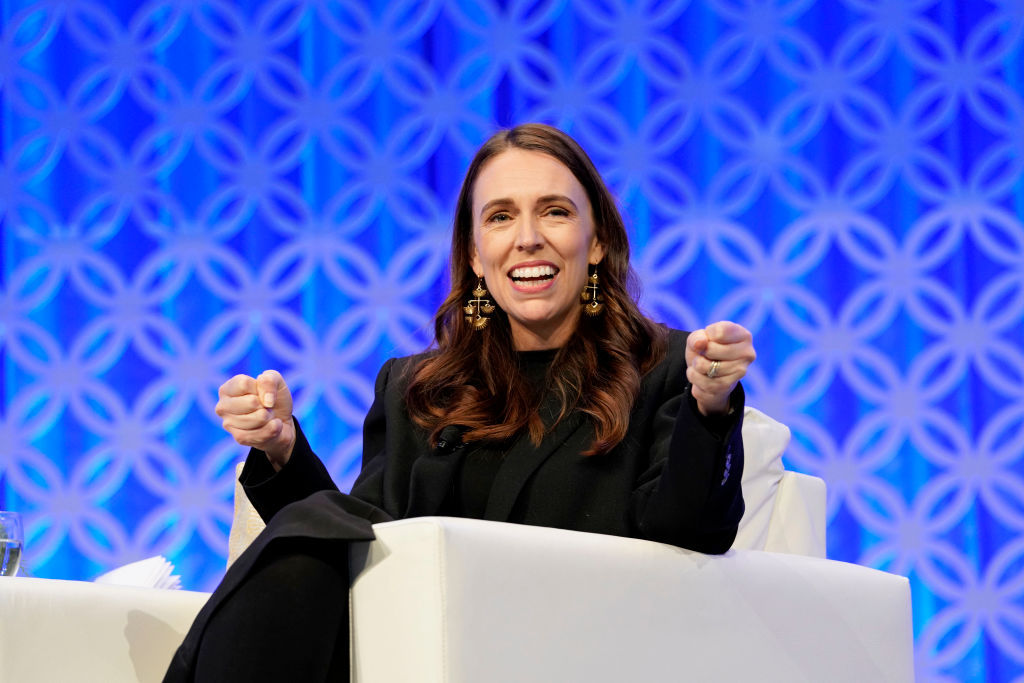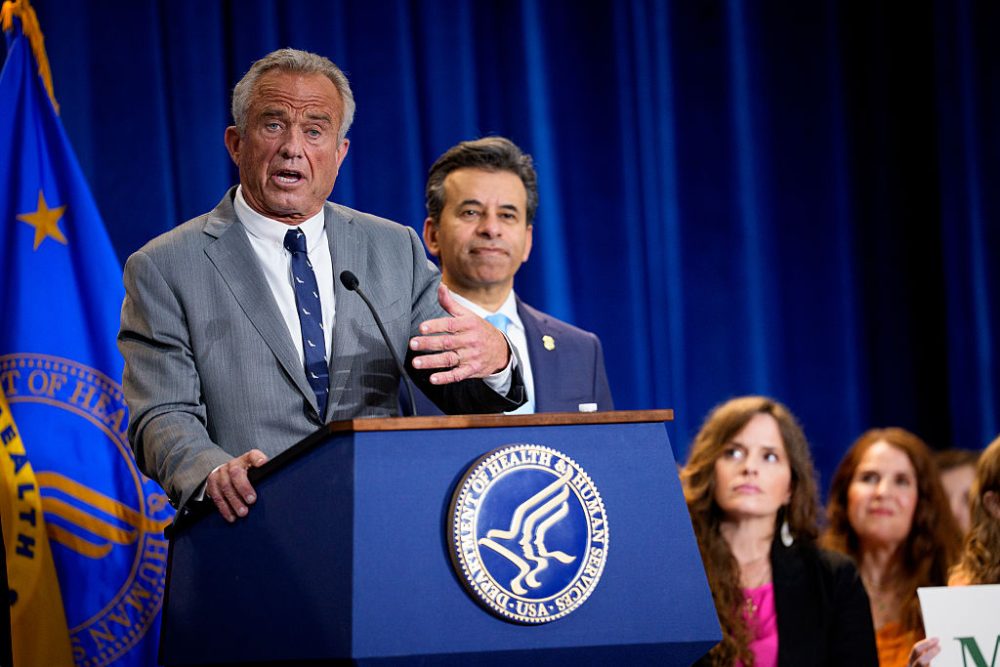The American economist and historian Robert Higgs noted long ago that during the 20th century the various wars, and the various declared equivalents of war, such as against drugs and viruses, regularly led to permanent expansions of state power. Power is the ability to coerce physically, war being the pre-eminent coercion. There has to be some reason that citizens of the UK and US are coerced to pay about 40 percent of GDP for the wars and other activities of the state, whereas a century ago they paid about 10 percent. Further, the state’s recently expanding regulation of many private activities — literally a million regulations promulgated by the US federal government, for example — calls on citizens to pay indirectly, too. In 1950, 5 percent of American occupations required a license from the state. Now it is 30 percent, and includes jobs such as hair-braiders and interior decorators. As the cowboy humorist Will Rogers said in the 1920s, before all this was evident: ‘Those who complain about the high cost of government should be glad we’re not getting all the government we’re paying for.’
Yet wars and other tumults, with the for-the-duration rise in state power, have always been with us. War and its equivalents did not used to lead to permanently bigger and more illiberal government. After the end of the Napoleonic Wars in 1815, the UK reduced state power, initiating the great age of liberalism. Yet after a similar putting-down of weapons in 1945, state power increased. In the US during the War to End All Wars, President Wilson took up tyrannical powers with gusto, using state propaganda to whip up anti-Hun feeling, and to suppress news of the ‘Spanish’ influenza. (It actually started, you need to know, on a pig farm in Kansas. My great-aunt Tillie from Illinois died of it.) But after 1918 the US reverted to liberalism. It didn’t do so after 1945, when hot war led to cold, the War Department was renamed the Department of Defense, and the state’s grip on the American economy tightened. The Food and Drug Administration, one of several agencies whose malfeasance is responsible for the present predicament in the US, was from 1962 given veto power over one-fifth of the economy. Food. Drugs. Coronavirus tests.
The evidence suggests, in other words, that behind the growth of government there’s something deeper, and more recent, than mere wars. The missing cause is ideas, as Higgs in fact came to believe — in particular a triad of anti-liberal ideas devised in Europe during the 19th century and implemented whole-hog during the 20th: nationalism, unlimited majority rule and socialism. As Keynes said in 1936: ‘The ideas of economists and political philosophers, both when they are right and when they are wrong, are more powerful than is commonly understood. Indeed the world is ruled by little else.’
For about a century, then, emergencies, such as the current fight against COVID-19, have been justifications for more state coercion. Viktor Orbán is using coronavirus in the way a few years ago he used Syrian immigration and anti-Semitism. The cause is not war but ideas, in Orbán’s case the mix of nationalism with socialism we call national socialism.
The second idea, of unlimited majority rule, has been exercised by an expanded franchise in the UK, from the Reform Bill of 1832 through to votes for women, and in the US from the Age of Jackson through to votes for blacks. The right to vote accords a human dignity that Mill and Tocqueville, Sylvia Pankhurst and Martin Luther King, and all true liberals of the past two centuries, have admired extravagantly. But, of course, majority voting viewed instrumentally does not always result in wise policies. Though, come to think of it, neither does elite rule, for which see Vietnam and scores of other expert idiocies. Maybe it’s ‘policies’ that are the problem, eh?
But anyway, about majority decision-making it remains true what another US wit from a century ago, H.L. Mencken, said: majority decision-making ‘is the theory that the common people know what they want, and deserve to get it… good and hard’. The worst of majority rule in Greece was called ochlocracy, or from a late coinage from Latin and Greek, mobocracy, demonstrated in the Athenians’ disastrous expedition to Syracuse during the Peloponnesian War. In honor of an old, silly movie of the name, it could be called idiocracy.
The third idea, socialism, like nationalism and majority rule, sounds to many ears unreservedly sweet and good. In its soft and non-Marxist form it re-enacts the family, in which the state as Mom and Dad gives security to the children in return for strict obedience. In a famous speech to the Swedish parliament in 1928, Per Albin Hansson spoke of folkhemmet, ‘the people’s home’. Mom wants you to obey, dear.
Socialism charmed me as a folk-singing leftie in high school. Jeremy Corbyn and I are the same age, and we had the same opinions about capitalism in 1960. Since then I’ve learned a little, for example that socialism is the use of the government’s monopoly of physical coercion to force people to do in the economy what they would not otherwise choose to do. Socialism might therefore be called economic coercionism.
Sometimes, of course, what the government coerces us to do is a fine idea, such as coercing parents to inoculate their children against measles. One measles case infects 20 others, and the disease is regularly fatal for adults who haven’t had it as children. Ask the Aztecs and Incas and Mohicans on that score. The number infected by each case of the novel coronavirus is two or three, which is quite bad enough, and without testing it is sneakily undetectable. For influenza the number is lower, between one and two, which is why in normal seasonal influenzas, for which we have partial inoculations, it doesn’t make a lot of sense to coerce people. People, especially old people like me, have plenty of incentive to self-protect by getting their shots, which brings down the contagion for people who don’t. And when the protection from the flu doesn’t work, as for many thousands annually it does not, there isn’t actually anything more that either self-protection or a coercive state can do about it.
In other words, coercion is not all bad, no more than preventing your two-year-old from running in front of a bus. Sometimes, in a war of survival, even in a liberal polity, we need to reach over and coerce people.
But in the coronavirus crisis, the American and British and Italian and Chinese states, all of them, unlike Korea and Singapore, stumbled at the first hurdle, namely, the correct, coercive response to a plague with a high infection number. Jump on it early and then test, test, test. After failing to do this, the only alternative is the medieval one: quarantine, blaming it meanwhile on the foreigners.
Our riches make the distinctly second-best approach of mass quarantine less than disastrous. We will recover, of course, and do not have to sacrifice our liberties forever to do so. For an idea of what permanent coercionism means, think of what O’Brien says in George Orwell’s Nineteen Eighty-Four: ‘If you want a picture of the future, imagine a boot stamping on a human face — forever.’
Let’s not. Let’s keep a true liberalism supporting innovation and adult dignity. Let’s not fall back into the arms of an ignoramus Daddy with authoritarian tastes. Let’s not suppose that an occasionally necessary coercion justifies coercionism, forever.
Deirdre Nansen McCloskey’s latest book is Why Liberalism Works: How True Liberal Values Produce a Freer, More Equal, Prosperous World for All. This article was originally published in
The Spectator’s UK magazine. Subscribe to the US edition here.












